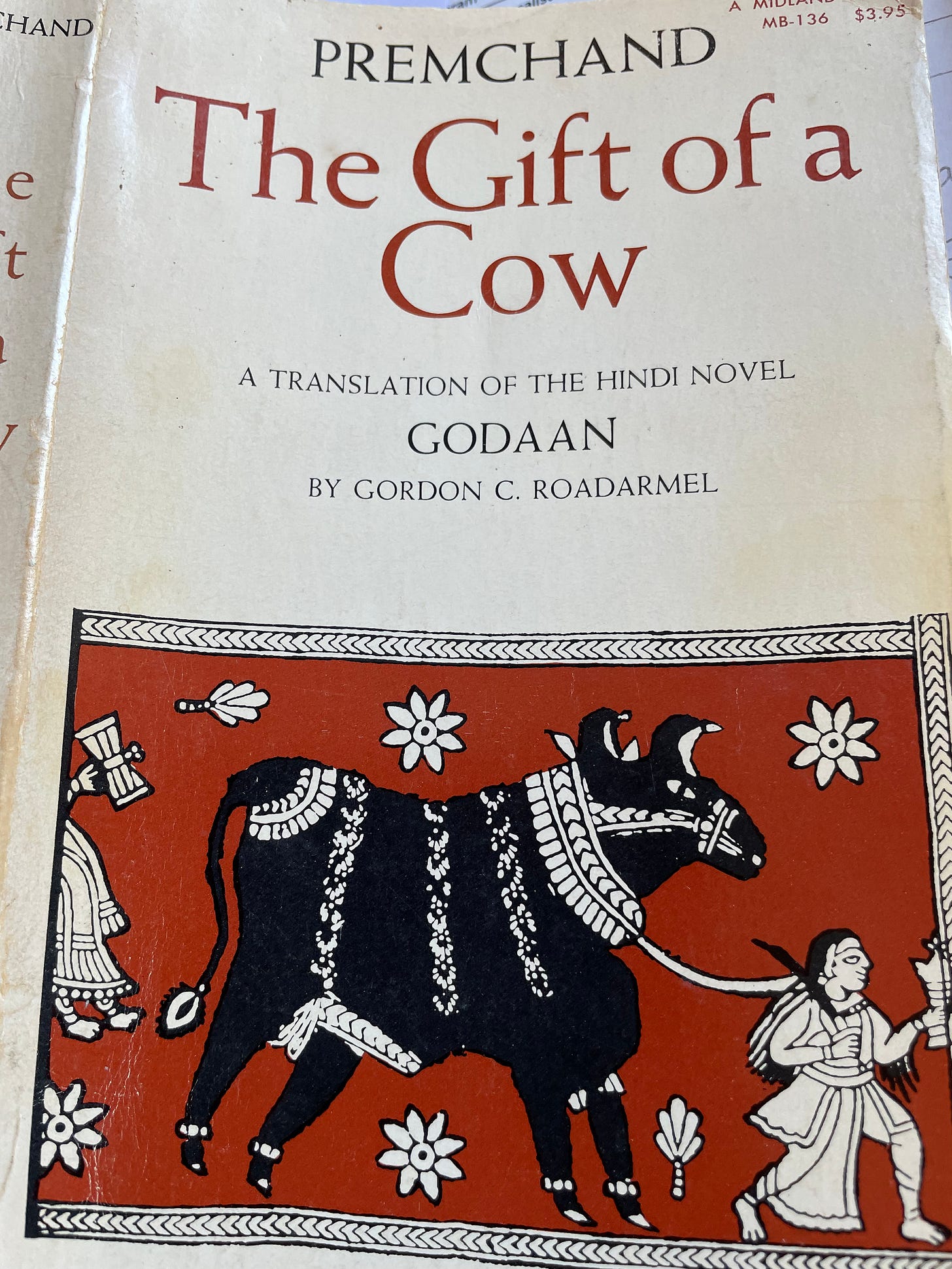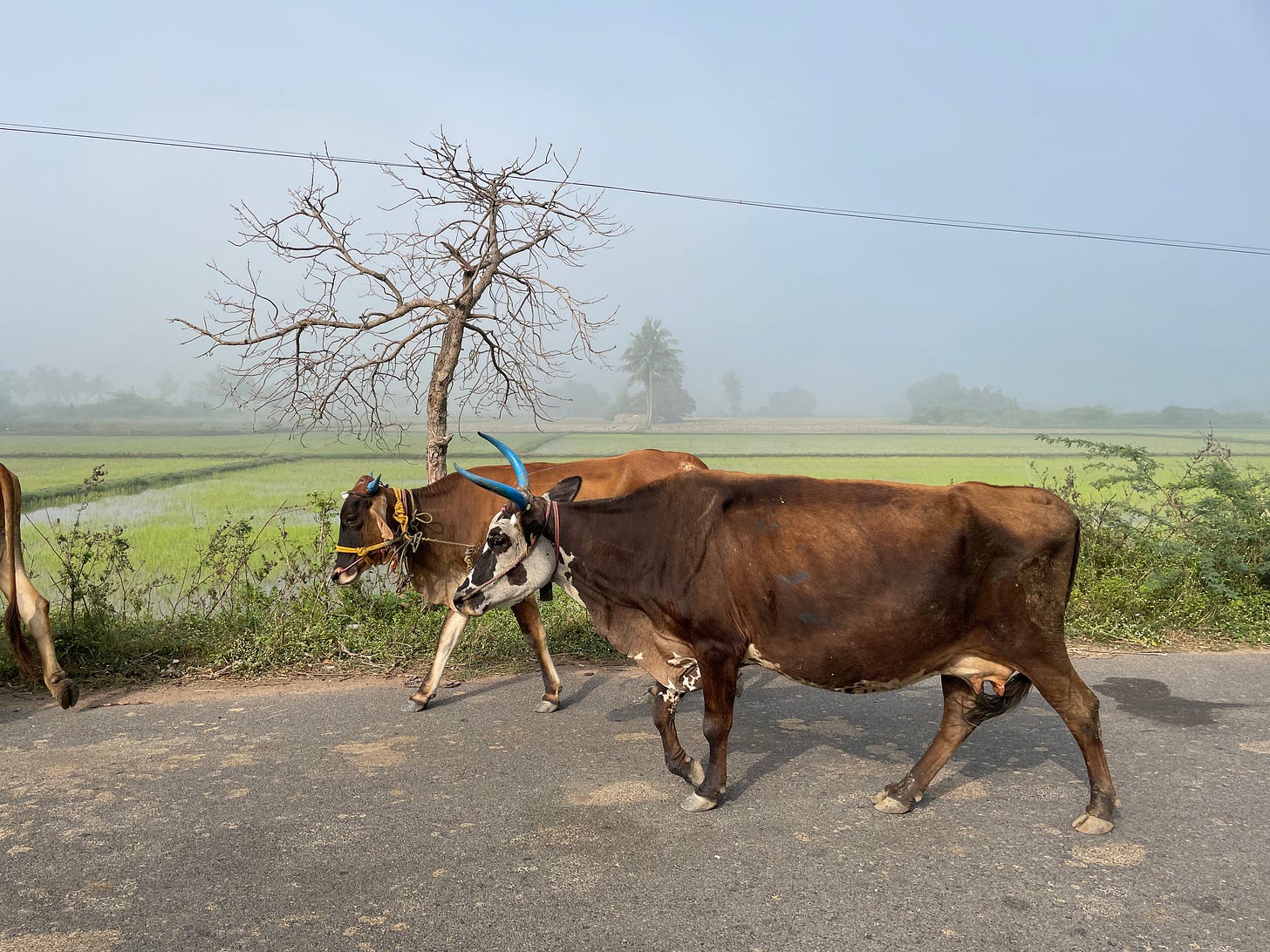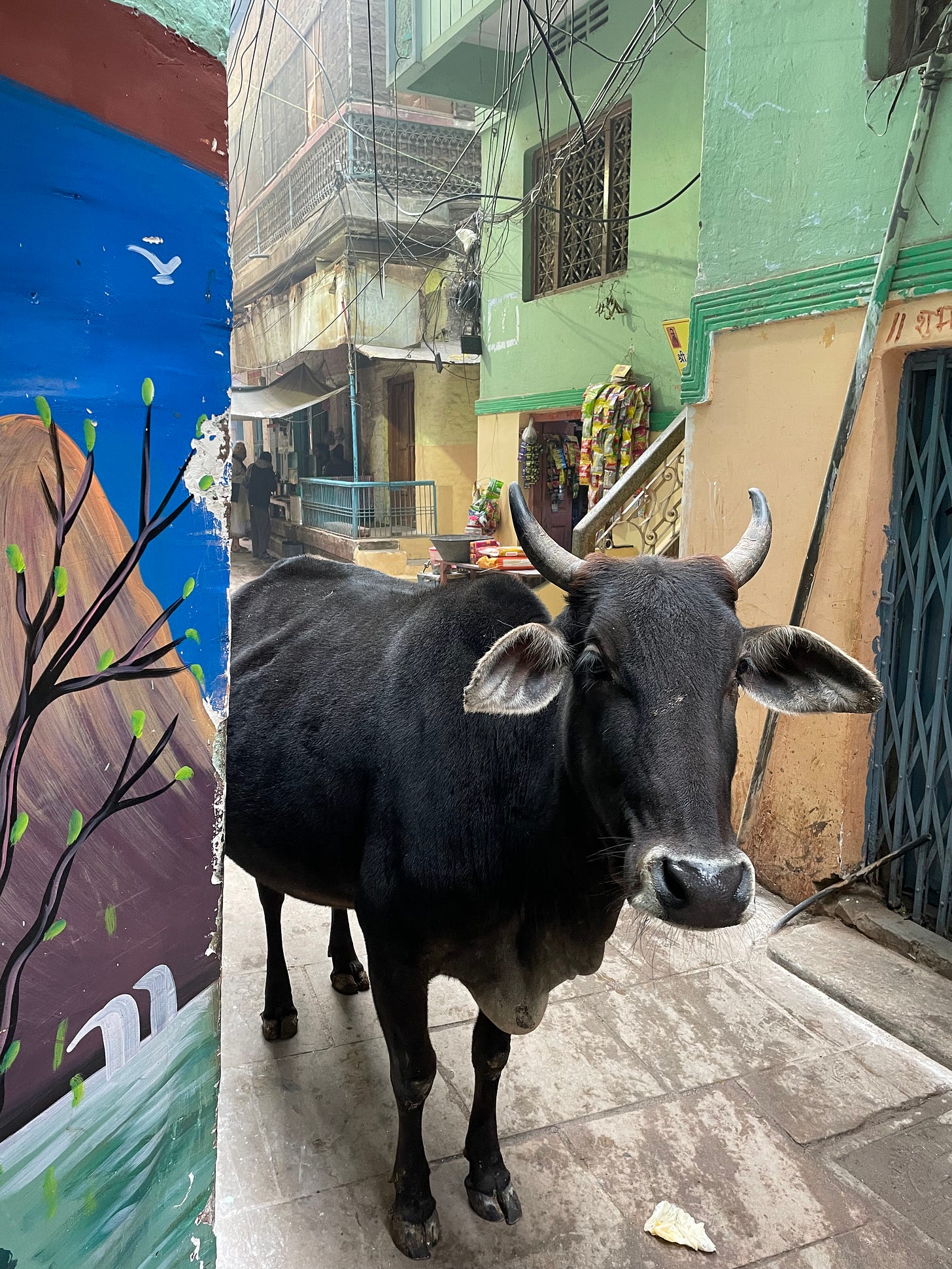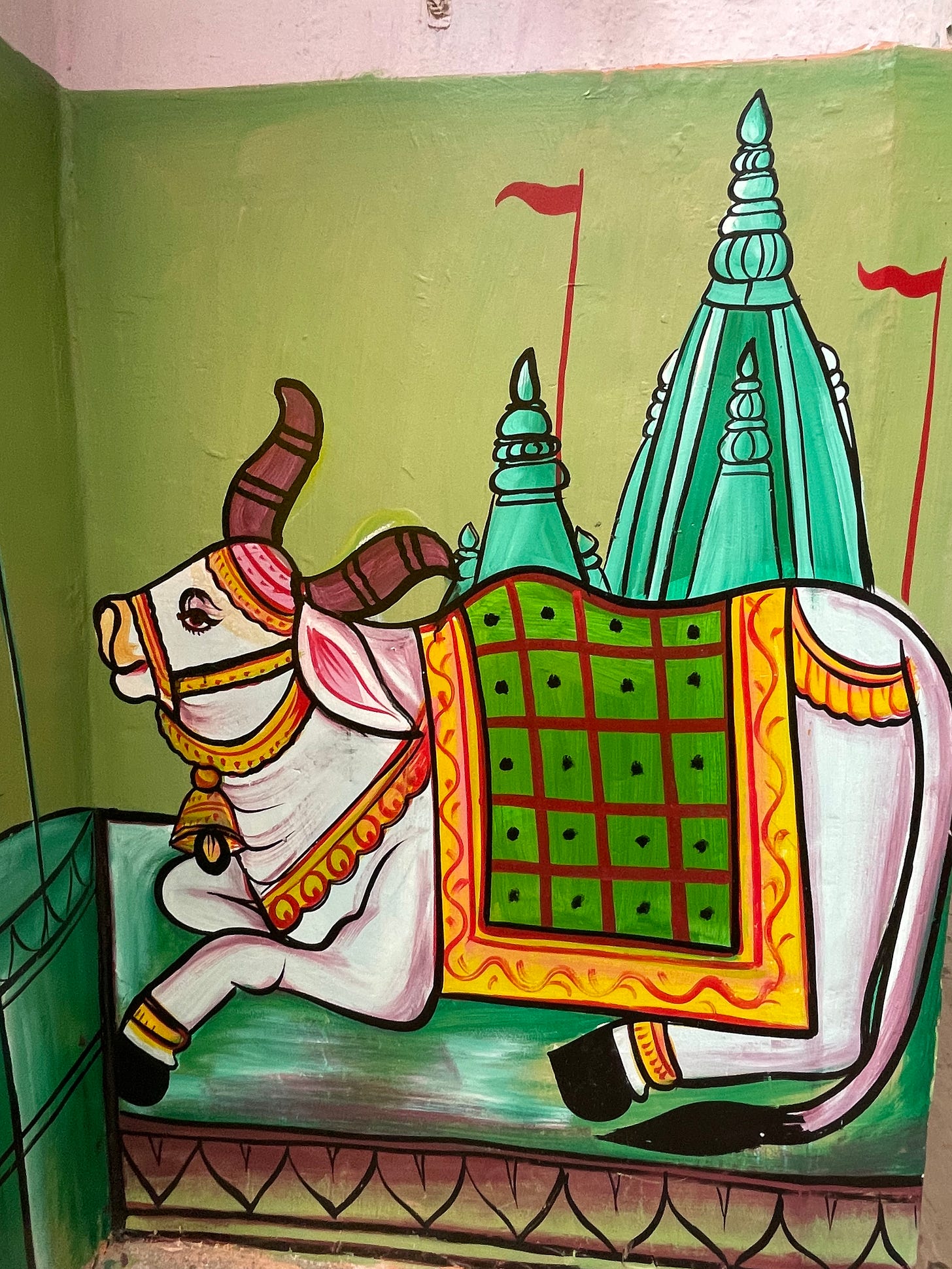A GIFT CALLED GODAAN
This translation of Premchand's Godaan is a majestic interpretation of a Hindi classic. I declare that it's one of the most moving and authentic representations of India that I've read.

When I actually received a copy of Godaan from Amazon, I was a tad worried. At 437 pages of very fine print, this book posed a challenging read in a week filled an assignment and several other commitments. Yet, I believe I did justice to it and came away with great respect for both the legendary author, Premchand, and his gifted translator.
I loved this translation so much that I was reminded, many a time, of the late Gregory Rabassa’s magnificent translation of One Hundred Years of Solitude. Godaan’s translator, the late Gordon C. Roadarmel, was a professor at the Department of South and South-east Asian Languages and Literatures at the University of California, Berkeley, “a pioneer in introducing modern Hindi literature to the Western world with his critical articles and his translations of such major figures as Premchand, Jainendra Kumar and Mohan Rakesh.”
Godaan, meaning “the gift of a cow”, is a rich delineation of India and the life of the poor Indian farmer. It’s a timeless story from a land that’s 70% agrarian even today. Almost ninety years after its original publication in Hindi, Godaan is relevant and topical. Since 1995, India has experienced close to 300,000 farmer suicides owing to usurious rates imposed by money lenders and private banks. Godaan narrates a tale about the real India in a way that I have rarely read before, of an India that few Indian writers writing in English have managed to capture with wit and candor.
Set in India’s Uttar Pradesh at the time of the British Raj, the novel revolves around the dream of a poor farmer, Hori Ram, who longs to own a cow. In Hindu custom, it’s believed that those who donate a cow to a Brahmin in their life on earth never fall into the dreaded Vaitarni River when they pass on to their afterlife. Clinging to the tail of the cow, the helpless soul successfully fords the river and enters heaven.
“Like all householders, Hori had for years nursed this longing for a cow. It was his life’s ambition, his greatest dream, since any ideas of living off bank interest, of buying land or of building a mansion were too grandiose for his cramped mind to comprehend.”
In the view of Godaan’s protagonist, the peace he has never won in his life on earth will be assured when he passes on into the other world. The arrival of that cow, his “goddess”, into his life will be the ultimate sign of his having arrived—not just in his village, in the present, but in the kingdom of heaven, in the future.

Hori is the cringing laborer for a local zamindar— a landowner who leases his land to tenant farmers; the rich zamindar is, in turn, an obsequious servant of those Englishmen who lord over the land. With the hope of attaining the holy grail, Hori works on his zamindar’s plot of land day after day. The land is as temperamental as all those who boss over him—his zamindar, the zamindar’s agents, his wife, and his innumerable creditors. Early on in the story, we hear Hori tell his wife in colorful terms that he has little choice with his zamindar.
“When someone’s heel is on your neck, it’s best to keep licking his feet.”
While Hori realizes that he needs to pay off what is due to others in the village, he’s unable to stop daydreaming about the purchase of a cow. To achieve this, Hori finds himself falling for all sorts of false promises and shady unwritten contracts. Hori’s wife Dhaniya is his foil. If he is gullible, ambivalent and spineless, she’s whip-smart, skeptical and fearless. Still, while Hori is tentative and thoughtful, Dhaniya is impetuous and drives a wedge between people. Hori’s worst qualities are his best. He’s fair and honest to a fault; however, as his first-born son, Gobar, points out, being truthful and gullible only drives him deeper into debt with moneylenders whose very survival depends on fleecing penurious farmers. Hori believes kindness and decency will seize the day but as his son declares, in a world of scheming scoundrels and envious brothers, the unwary ones will founder and drown.
Premchand manages to elevate this family story to a sweeping portrait of India’s struggles with social reform. Hori often laments that his “caste position” in the village is downgraded after Gobar has a child out of wedlock with Jhuniya; yet when the woman arrives at his doorstop, Hori and Dhaniya welcome her even though they’re uncertain how they will feed yet another mouth. Hori and his village’s concerns about caste don’t seem to show up, at least not overtly, in the city; there, the social pressures are often rooted to money and standing. The man who has the most money is the man who rules the day. When his sugar mill burns down, Khanna realizes, in a matter of a few hours, how his many million rupees have been razed to the ground, leaving him a pauper. Rai Sahib constantly worries about marrying his children into wealth but the joy from that too dissipates when the marriage of his daughter to Digvijay Singh, a dissolute, ends up on the rocks.
The author often launches into soliloquies, especially when he fusses over the rich and the educated. These feel tiresome and gratuitous on occasion. Premchand also tries to establish that life works out well for people with a moral center even though things may not exactly work out the way someone envisioned it. In Hori’s case, for instance, the cow does arrive as a gift in the most poignant manner possible, after all.
The novel seems to deify women. They love and they hate with equal ferocity. Every female character in Godaan—Dhaniya, Jhuniya, Malti, Mrs. Khanna, Puniya, Siliya, Sona and Rupa—is unshakeable and morally upright. Even Nohri, portrayed as a flaky woman, comes out ahead, as a woman who knows what she wants. Malti of the city has all the men wound around her little finger. Still, while she knows that no one but Mehta is right for her, she makes the philosophizing professor see, in the clearest terms, that their mutual love will make them material and selfish, and actually come in the way of selfless service.
I never imagined that I would actually enjoy a book crafted around rural life in India. While the novel is a story of the pursuit of the one thing a poor farmer wants that will make his life complete, it’s also a commentary on the elusive thing that all of us, no matter our station in life, hanker after. For many of us, this aspirational “cow” may dodge us all our lives; if or when it actually does arrive, it will not even matter, for we may not recognize, or savor its presence at all.
Godaan isn’t always tightly written; there are many passages that are as bombastic and distended as some of the filthy rich who populate its pages. Yet the writing is unique and infinitely memorable. Every page sparkles with imaginative sayings and adages from the local dialect of Belari. I close with a line that appears, in different forms, through this endearing work of art.
“When you live in the water, you can’t offend the crocodile.”





Updated: “When you live in the water, see if you can make friends with the piranhas and get them to attack the crocodile, and especially eat its babies.” I write this as a guy who lived through the trump administration.
Although I have not read Premchand's work, your clear and poignant summary of his translated work took me right into his mind and how he sees things. Your precis, done to near perfection, of his work made me go and buy that book and breeze through its 500 pages, which I am going to do. I just finished the 1,000-page tome on Jefferson by Jon Meacham. He, too, has a gift of taking you right to Monticello as he describes TJ's adventures and life. Thanks for your generous gift, Kalpana!